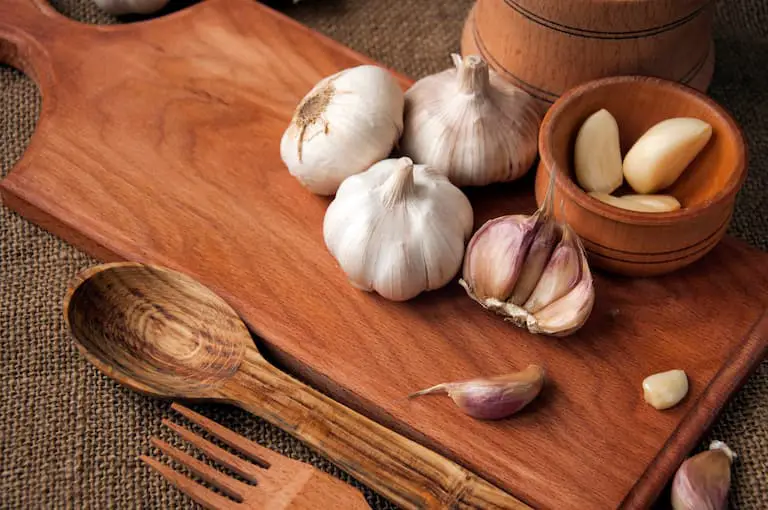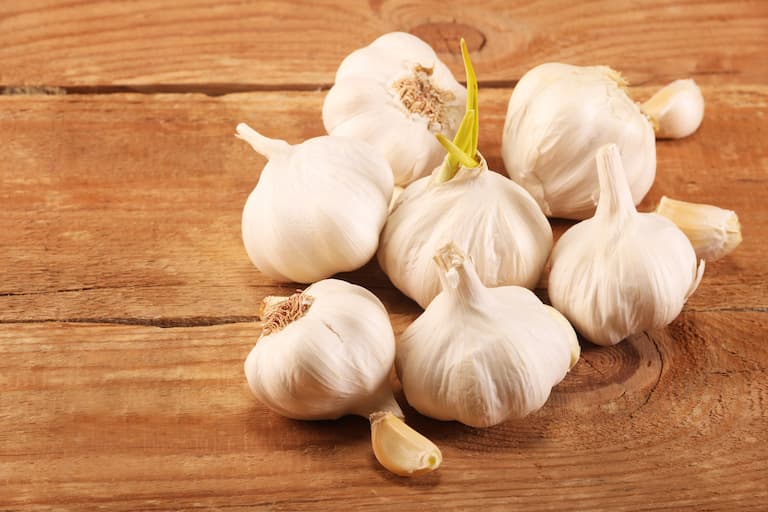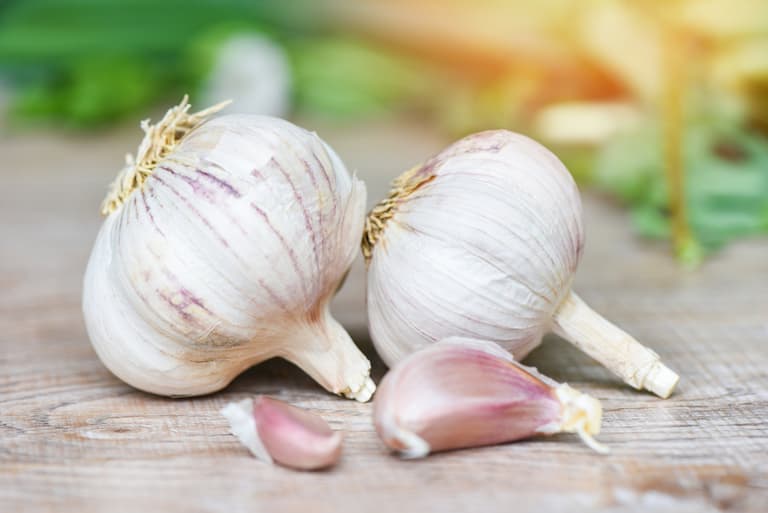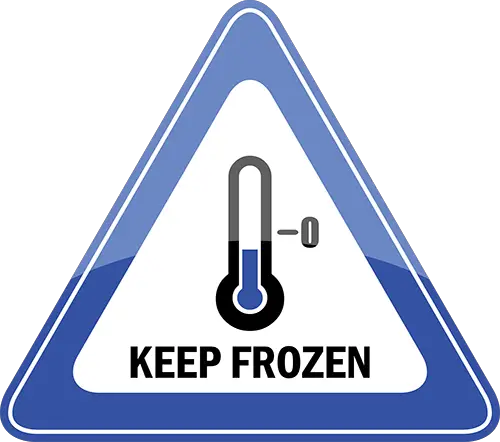Can You Freeze Garlic? (YES! All Your Questions Answered)
Let’s face it, there are a lot of food items that end up going bad before you get around to using them. One common item that people end up tossing out before using it all is fresh garlic. This leads many chefs and home cooks to ask the question, “Can you freeze garlic?”
You can freeze garlic, it’s quite easy to do. However, it is vital that you use the proper packing methods before freezing it. Garlic is best frozen in an air-tight container and can last in the freezer for up to a year. It’s best to freeze whole, unpeeled cloves, to preserve the garlic’s oils.
This article will discuss the best ways to freeze garlic, how long it can last, and the various ways you can prepare garlic before freezing it for the best results.
It’s essential to understand that some methods of preparing the garlic will work better than others depending on the container that it’s stored in and the length of time you intend to freeze it. Keep reading to find out more!

Can You Freeze Garlic? Yes, There Are Multiple Ways
We know that it’s possible to freeze garlic, but you may be wondering about the best way to prepare it for freezing. It would be best to consider several things before putting garlic in the freezer.
To properly freeze garlic, you should make sure that it’s clean and not bruised. Next, you’ll need to put it in an air-tight bag or plastic wrap. You can do this with a whole head of garlic or individually peeled cloves.
Understanding these steps is vital to preserving the quality of the garlic when you freeze it. You can also use other methods when preparing garlic for the freezer. These include:
- Chopping the garlic up and making a compound butter
- Soaking whole cloves in olive oil
- Putting whole cloves in butter in an ice cube tray
- Slicing garlic and putting it in olive oil
What Is the Best Way To Prepare Garlic for Freezing?
After seeing several different methods for preparing garlic for the freezer, you may wonder what the best way to prepare the garlic for freezing is.
The best technique for preparing garlic for freezing depends on your preference and how you plan to use it. Leaving the cloves whole is the most popular way to freeze garlic, as many believe it preserves the oils better than chopping or slicing them prior to freezing.
The potent flavor that garlic is known for is because of the presence of Allicin. A chemical reaction occurs when two important garlic components mingle. Allin and Allinase combine to form Allicin, but this only occurs when you cut the garlic. The reaction happens quickly, and the oils will lose potency over time, so it’s best to cut the garlic immediately before using it.

How Long Can Garlic Last in the Freezer?
Once we understand the best ways to prepare garlic for the freezer, the next question people may have is how long can garlic last in the freezer? Does it last for weeks, months, or years?
Garlic can last in the freezer for up to one year. As long as you put the garlic in an air-tight freezer bag that’s clean and free of debris, it should maintain quality in the freezer for up to a year.
It’s essential to take the proper steps to preserve freshness when preparing your garlic, as seen in this video:
After watching this video, it’s clear that you can store garlic for a reasonable time in the freezer. You just want to ensure that you’re using the necessary techniques and tools to maximize freshness when freezing garlic.
Will the Garlic Taste As Good After Freezing?
Now that we have seen some different ways to freeze garlic and better understand the process, we can begin to think about the application. When you take the garlic out of the freezer in preparation for cooking, you may be wondering if the garlic will taste just as good after freezing it.
Frozen garlic may not taste as good once it’s thawed as some flavor will be lost over time. The oils in garlic are sensitive and can be lost after taking off the outer paper or cutting into the cloves. Fortunately, you can help preserve the oils by leaving the cloves whole.
Leaving the cloves whole before freezing will help preserve the oils in garlic. You can also make a compound butter or soak it in oil to help lock in the garlic’s oils. While garlic may lose some flavor from freezing, taking the proper steps to maximize freshness when freezing it will ensure that there’s still plenty of flavor in the garlic you froze when you use it for cooking.
Will Garlic Lose Nutrients From Freezing?
Freezing foods is a great way to preserve freshness when you cannot get to the food item before it spoils. In this sense, it’s an effective way to save money and reduce waste.
However, one question that arises when freezing foods is if there’s any impact on nutrition. Will garlic lose nutrients when you freeze it?
Garlic will not lose nutrients once it’s in the freezer. Freezing garlic will preserve the nutrients that haven’t already been lost since being harvested. Freezing garlic will slow down the chemical reaction that causes food to lose nutrition.
As explained in an article from the University Of Minnesota, if you take proper steps, like ensuring minimal air in the storage container and ensuring the freezer is at a cold enough temperature, there will not be an issue with losing nutrients from freezing the garlic.
Will Freezing Garlic Change the Texture?
Another concern people have when freezing food is whether it’ll change the texture of their food. When freezing garlic, people often wonder will it be as firm as before you freeze it, or will the texture change?
Freezing garlic will cause it to be softer than when it was fresh. The garlic becomes softer because when you freeze food, you’re also freezing the water inside it. There’s a chemical change when it thaws out that causes the texture of garlic to be softer.
Garlic that’s thawed after freezing will not have the same firmness as before freezing it, but it’ll still work perfectly fine for cooking. It’s a great alternative to buying pre-packaged garlic in a jar. Therefore, the change in texture isn’t a significant cause for concern, especially since you’ll likely be cooking with it instead of eating it whole.

Will Freezing Garlic Make Your Freezer Smell?
Food odors in the fridge and freezer can drive home cooks crazy. Garlic has a reputation for having a powerful aroma that’s hard to get rid of in your kitchen appliances. When freezing garlic, you may wonder if the garlic will make your freezer smell?
Garlic can make your freezer smell if it’s not frozen correctly. To minimize the odor from garlic in your freezer, you must take proper steps when preparing it. Using adequate packing will help ensure that your freezer doesn’t smell overwhelmingly of garlic.
One of the ways you can minimize the smell of garlic in your freezer is to use durable packaging. It’s suggested that you use more than one ziplock bag to reduce the odor of garlic when freezing it.
Another way to prevent the smell from permeating the freezer is to put the garlic in a plastic bag and then put that bag inside of a Tupperware container. Placing the garlic in the plastic bag first provides a double layer of protection so the odors from the garlic do not make it into your freezer.
Another popular method of freezing garlic involves placing cloves of garlic and melted butter into an ice cube tray. However, in this case, the ice tray with garlic would be uncovered during the initial freezing process. If the smell of garlic in your freezer is a concern for you, then this wouldn’t be a method of freezing garlic that would be suitable for you.
Can You Freeze Garlic – Summary
You can indeed freeze garlic. Freezing garlic is a good option if you are trying to avoid throwing away any extra garlic cloves you have before it spoils. There are a few things to keep in mind, however, when freezing garlic:
- Pack it in an air-tight container to preserve freshness and avoid foul-smelling odors.
- The texture will be softer than when it was fresh.
- It would be best to plan to use the garlic within a year.
- The aroma could carry into your freezer.
As long as you’re aware of these factors, freezing garlic is a great option.






